A Hero’s Journey Through Family Struggles and Kaiju Battles
“Ultraman Rising” is the latest animated superhero fantasy that takes center stage with its focus on absent parents, lost children, and other familiar tropes. This film diverges from the recent “Shin Ultraman,” aiming for a family-friendly audience less concerned with the character’s storied past. While this shift is not inherently problematic, it sometimes highlights the formulaic nature of this new movie’s drama, recycling clichés that have long been entrenched in animated features.
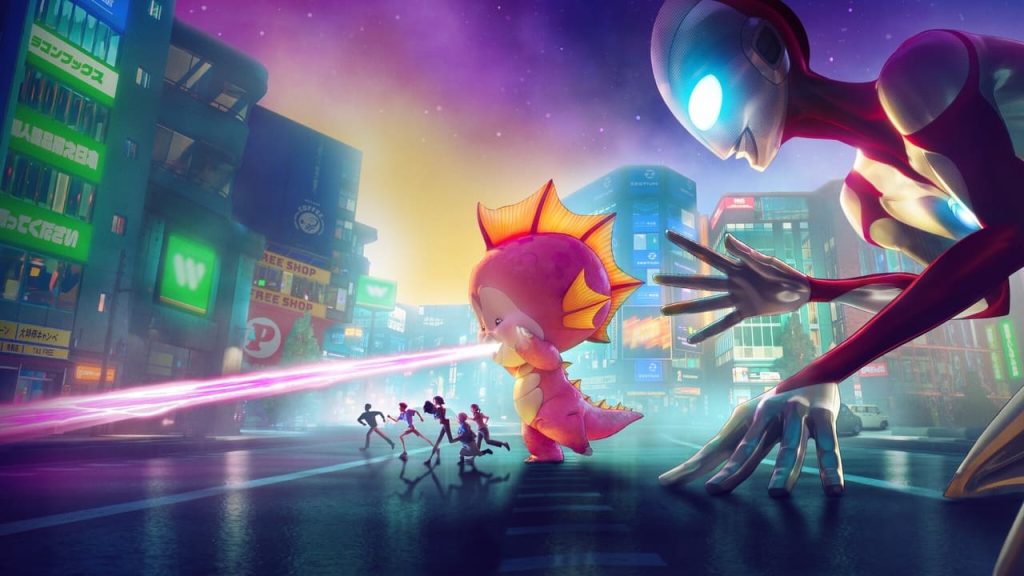
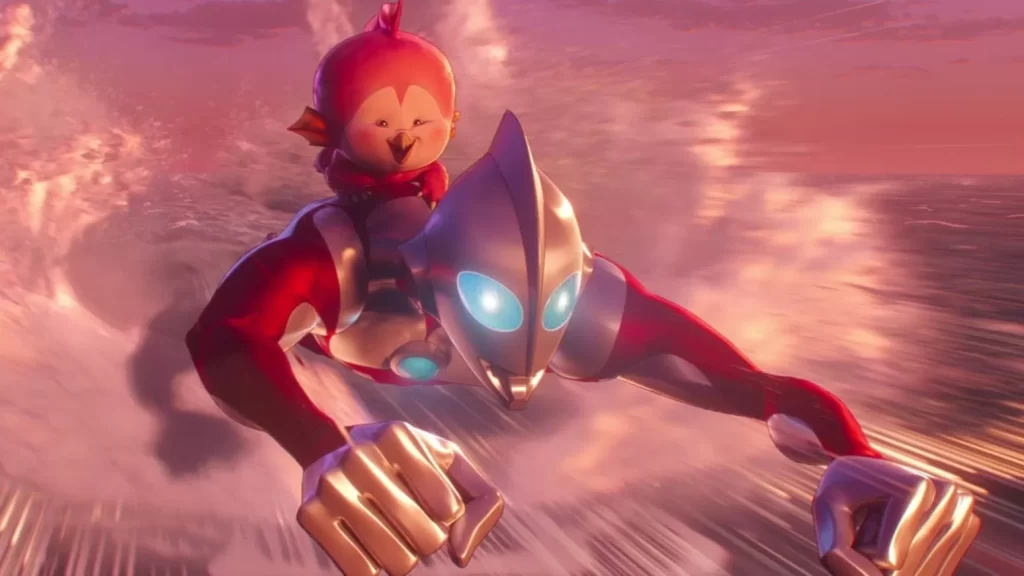
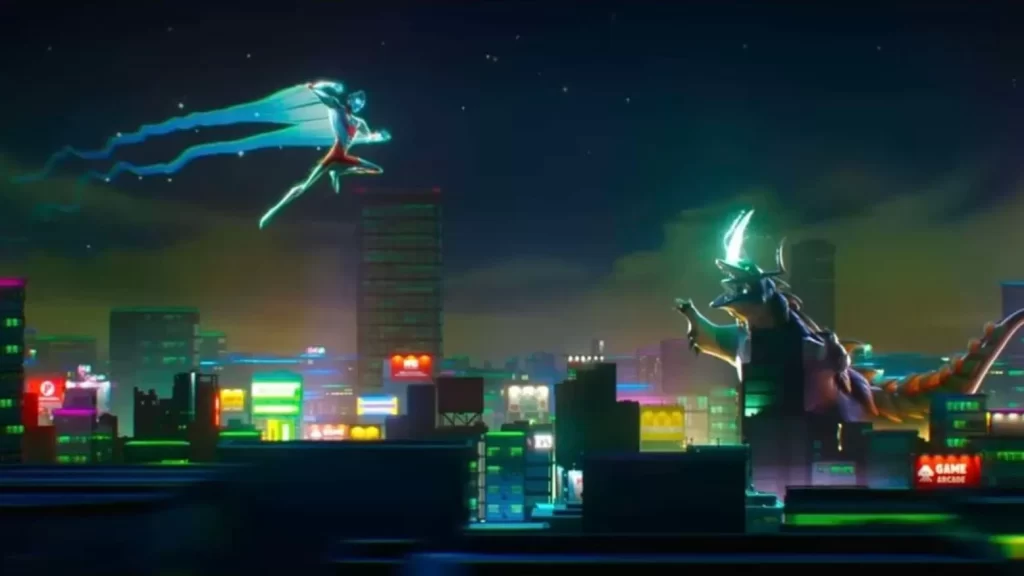
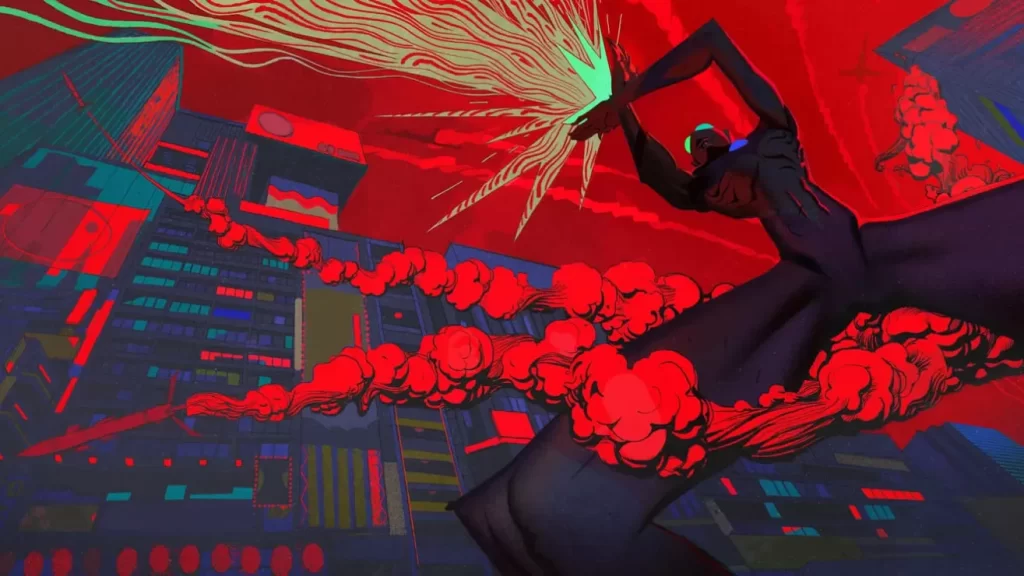
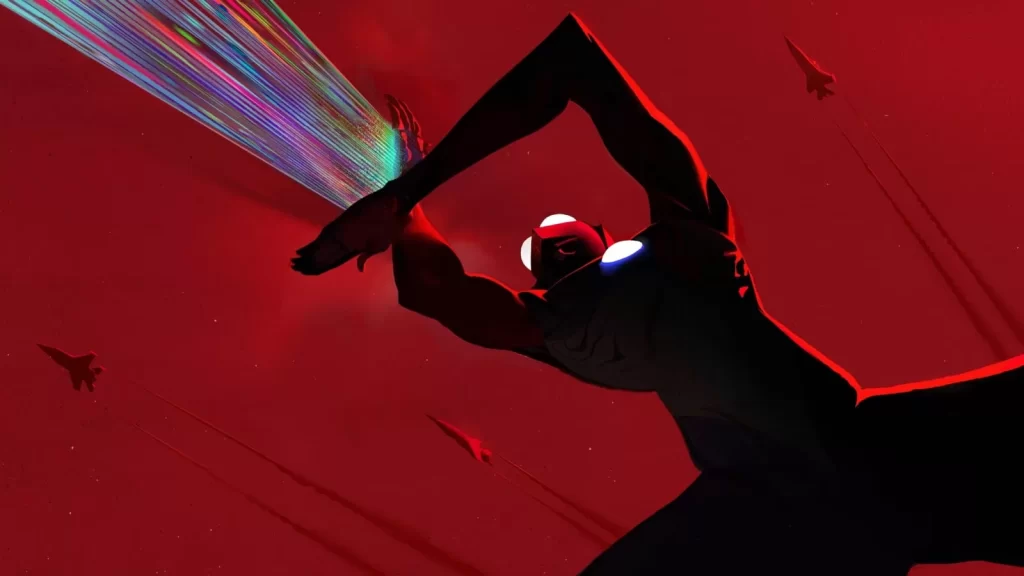
In “Ultraman Rising,” the brooding hero must overcome domestic challenges—an angry father and a missing mother—while taking care of a giant baby dragon monster. The dragon, with its wild mood swings and heart-tugging design, adds a layer of charm to the film. However, Ultraman’s human alias, Ken Sato, played by Christopher Sean, struggles to balance his major league baseball career with his kaiju-battling responsibilities. This dual life forms the crux of the narrative, though Ken’s character often fluctuates based on the plot’s needs.
Ken’s relationship with his father, Professor Sato (Gedde Watanabe), is strained due to past traumas. This dynamic sets up the central tension as Ken, with help from his robot minder Mina (Tamlyn Tomita), takes on the responsibility of caring for Emi, a baby kaiju. This puts him at odds with Dr. Onda (Keone Young), the militaristic leader of the Kaiju Defense Force. The film also introduces Ami Wakita (Julia Harriman), a journalist and single mom, who helps guide Ken. Despite these relationships, Ken’s journey to heroism is marred by clichéd dialogue and predictable plot twists.
While “Ultraman Rising” aims to appeal to a broad audience, it often falls into the trap of trying to be too many things at once. The film’s tone shifts awkwardly, with some of the of the dialogue feeling out of place. For instance, Ken’s rhetorical musings and the unexpected inclusion of the Sex Pistols’ “Pretty Vacant” highlight these tonal inconsistencies.
The animation quality is another mixed bag. While Emi’s movements and expressions are well-executed, the human characters suffer from stiff body language and inarticulate facial features. Despite the voice cast’s efforts, the characters’ lifelessness is hard to overlook.
However, “Ultraman Rising” shines whenever its titular hero takes the spotlight. The sequences featuring Ultraman battling Kaiju showcase the best work from the movie’s team of animators. These scenes play to the filmmakers’ strengths, focusing on the dynamic movements of the superhuman giants rather than their deeper emotional struggles.
Positive Aspects
- Innovative Storytelling and Themes:
- “Ultraman: Rising” adds an interesting wrinkle of childrearing to the franchise’s high-octane formula, making for a colorful romp fit for the whole family. The film explores themes of family, balance, and the struggles of parenthood, which resonate deeply with audiences 123.
- Compelling Character Development:
- Stunning Animation and Visuals:
- Action-Packed and Entertaining:
- The film excels in its action sequences, showcasing creative power usage and clever use of the environment. The climactic battle scenes are particularly noted for their spectacle and excitement, making the film enjoyable for both children and adults 89.
- Family-Friendly Appeal:
Mixed to Negative Aspects
- Narrative and Character Inconsistencies:
- Critics have noted that the film’s narrative and character development can be inconsistent. The script seems uncertain about Ultraman’s identity, oscillating between portraying him as a humble guy and a superhero. This lack of clarity affects the overall coherence of the story 1213.
- Overcrowded Plot:
- The film’s plot is described as overcrowded, with too many subplots and elements that detract from the main narrative. The inclusion of baseball, kaiju battles, and family dynamics makes the story feel convoluted at times 1415.
- Predictable and Clichéd Elements:
- Mixed Reception of Emotional Depth:
- Limited Impact and Longevity:
- Despite its polished production and enjoyable elements, some critics believe that “Ultraman: Rising” may not have a lasting impact. The film’s minimal promotion and the crowded market of kaiju and superhero films may cause it to be overlooked in the long run 21.
“Ultraman: Rising” (2024) is a visually stunning and emotionally engaging film that brings new life to the Ultraman franchise. Directed by Shannon Tindle and John Aoshima, the film explores themes of family, balance, and the struggles of parenthood through the journey of Ken Sato. With its compelling character development, action-packed sequences, and family-friendly appeal, the film offers an enjoyable experience for viewers of all ages.
However, the film’s narrative inconsistencies, overcrowded plot, and reliance on clichéd elements may detract from its overall impact. While “Ultraman: Rising” is a noteworthy entry in the franchise, its long-term success and resonance with audiences remain to be seen.
For fans of the Ultraman series and those looking for a family-friendly superhero film, “Ultraman: Rising” is a must-watch. Its innovative storytelling and stunning animation make it a standout in the genre, despite its flaws.
Frequently Asked Questions (FAQs):
1. What is the main plot of “Ultraman Rising”?
- According to IMDb, “Ultraman Rising” follows Ken Sato, a baseball prodigy who must balance his sports career with his duties as Ultraman. The story focuses on his personal struggles and his mission to protect the city from Kaiju threats.
2. Who directed “Ultraman Rising”?
- The film was directed by a team under the guidance of Xavier Gens, known for his dynamic approach to storytelling, as detailed on Wikipedia.
3. Where can I watch “Ultraman Rising”?
- You can watch “Ultraman Rising” on iWatchOnline, a platform offering a wide range of films and TV shows.
4. What themes are explored in “Ultraman Rising”?
- The film explores themes of parental relationships, personal growth, and the responsibilities of heroism, as noted in reviews on Metacritic and Rotten Tomatoes.
5. How has the film been received by critics?
- Critics have had mixed reactions to “Ultraman Rising,” praising its entertaining action sequences and animation while critiquing its clichéd narrative and inconsistent tone. This reception is evident from detailed reviews found on IMDb and Rotten Tomatoes.
For more detailed reviews and opinions, you can visit the aforementioned sources.
Sources:



